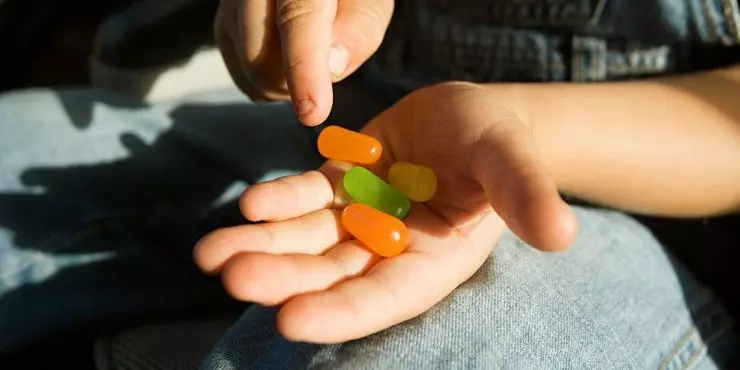
As parents, we always want what’s best for our kids, especially when it comes to their health. While sweet treats and sugary drinks might seem like harmless indulgences, research shows that excessive added sugar in a child’s diet can have significant long-term effects on their overall health and well-being. Let’s explore how added sugar impacts your child’s health and how you can make small changes to support their future.
What Is Added Sugar?
Added sugars are any sugars or sweeteners added to foods and beverages during processing or preparation. These include table sugar, syrups, and honey, as well as hidden sugars found in processed foods like sodas, fruit juices, cereals, snacks, and baked goods. Unlike natural sugars found in whole fruits and dairy products, added sugars provide little to no nutritional value and can have harmful effects when consumed in excess.
The Long-Term Effects of Added Sugar on Children’s Health
Increased Risk of Obesity
Excessive sugar intake can lead to weight gain in children. Sugary foods and drinks are often calorie-dense but not filling, causing kids to consume more calories than they need. Over time, this can contribute to childhood obesity, which increases the risk of developing chronic diseases like diabetes and heart disease later in life.
Type 2 Diabetes
Consuming too much added sugar can lead to insulin resistance, a precursor to type 2 diabetes. While this condition was once considered rare in children, it’s becoming increasingly common due to rising rates of childhood obesity and poor dietary habits.
Dental Cavities
Added sugar is one of the leading causes of tooth decay in children. Sugary snacks and drinks feed harmful bacteria in the mouth, which produce acid that erodes tooth enamel. This can result in cavities and other dental problems that require intervention.
Heart Disease Risks
A high-sugar diet can lead to elevated blood pressure, increased inflammation, and higher levels of unhealthy fats in the blood—all of which are risk factors for heart disease. Establishing healthy habits early can help protect your child’s heart health as they grow.
Behavioral and Cognitive Effects
While sugar itself doesn’t cause hyperactivity, rapid spikes and crashes in blood sugar levels can affect a child’s mood, focus, and energy. Over time, diets high in sugar have been linked to poorer academic performance and difficulties with attention and learning.
Nutritional Deficiencies
Kids who consume a lot of sugary foods and drinks may not eat enough nutrient-rich foods like fruits, vegetables, whole grains, and lean proteins. This can lead to deficiencies in essential nutrients needed for proper growth and development.
How Much Sugar Is Too Much?
The American Heart Association recommends that children consume no more than 25 grams (6 teaspoons) of added sugar per day. To put this into perspective, a single 12-ounce can of soda contains about 40 grams of sugar—well above the daily limit. Monitoring and reducing added sugar intake is crucial for long-term health.

Tips for Reducing Added Sugar in Your Child’s Diet
- Read Food Labels
Check the nutrition labels on packaged foods to identify hidden sugars. Look for terms like high-fructose corn syrup, cane sugar, and sucrose, and choose products with little to no added sugar. - Limit Sugary Drinks
Replace sodas, sweetened teas, and fruit juices with healthier options like water, milk, or unsweetened herbal teas. Infusing water with fresh fruit can make it more appealing to kids. - Focus on Whole Foods
Serve meals and snacks made from whole, unprocessed ingredients. Fresh fruits, vegetables, nuts, and whole grains are naturally low in sugar and packed with nutrients. Learn more about your child’s nutritional needs at every age here. - Make Smart Substitutions
Swap sugary cereals for oatmeal (steel cut is best) topped with fresh fruit or nuts. Choose plain yogurt and add a drizzle of honey or fruit instead of buying flavored varieties. - Set a Good Example
Children often model their eating habits after their parents. Reduce your own intake of added sugar and make healthy choices to inspire your kids to do the same. - Save Treats for Special Occasions
While it’s okay to enjoy sweets occasionally, try to reserve them for celebrations or family outings rather than making them a daily habit.
Building a Healthier Future
The choices we make today can shape our children’s health for years to come. By being mindful of added sugars and encouraging a balanced, nutrient-rich diet, we can set the foundation for a healthier, happier future. Remember, small changes add up over time, and your efforts to reduce sugar intake will benefit your child’s body and mind in countless ways.
If you have any concerns about your child’s nutrition or would like guidance on creating a healthy eating plan, our team at Northwest Family Clinics is here to help. Together, we can support your family’s journey to better health!